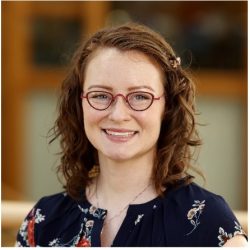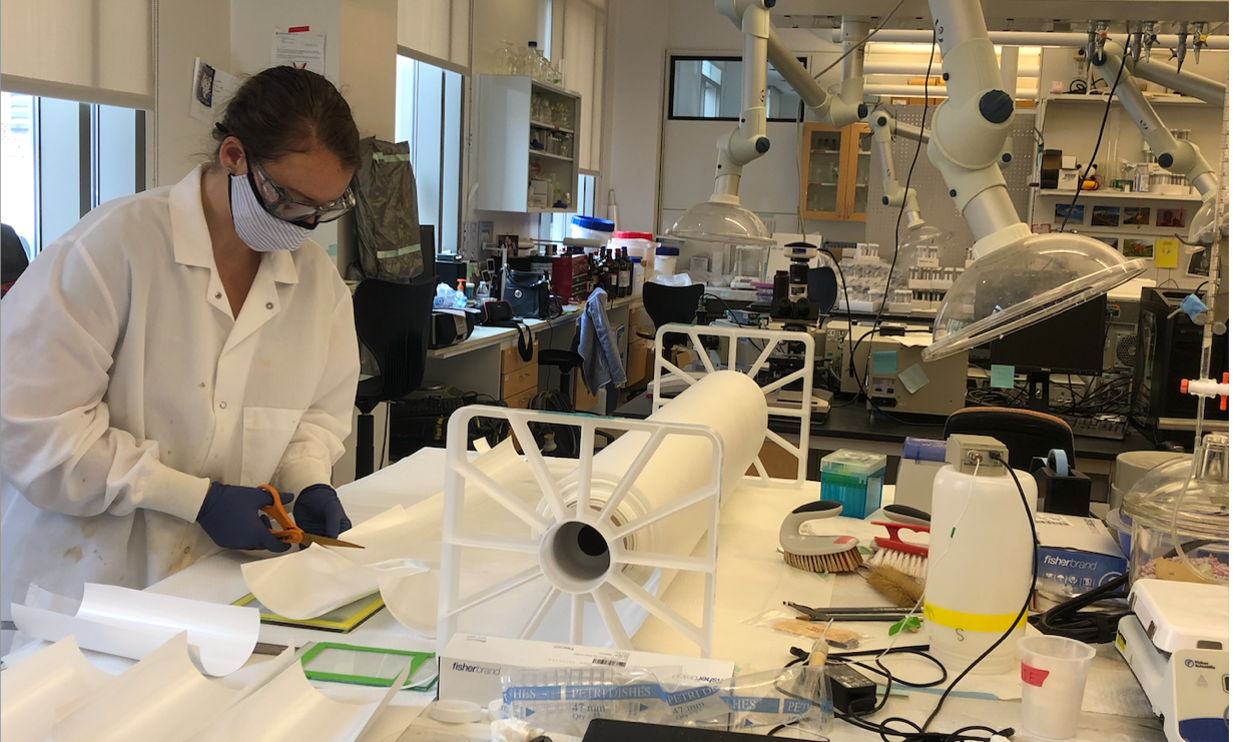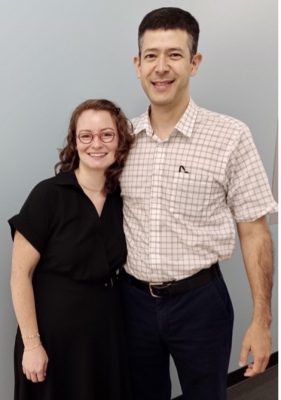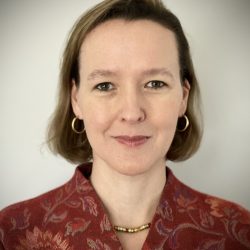Trainee Talks: Mikayla Armstrong’s journey to a career in membrane science
“It’s so interesting to me that water can be clear and seem fine to drink yet there can actually be things in it that aren’t good for our health,” said Mikayla Armstrong, PhD, who until recently was a UNC SRP trainee in Project 5. Armstrong’s interests led her along a pathway towards the intersection of water, technology, and public health and a new career in membrane development and testing.

Dr. Mikayla Armstrong
In September, Armstrong successfully defended her dissertation on advancing the fundamental understanding of polyamide thin-film composite membrane formation, structure, and development, and will graduate from UNC-Chapel Hill in December with a PhD in Environmental Science and Engineering.
Under the direction of UNC SRP Project 5 leader, Orlando Coronell, PhD, Armstrong conducted research to better understand how reverse osmosis membranes, a type of water filter technology, is developed and how it can be altered to improve its effectiveness.
Water purification technologies, including membranes, are used for many different applications, including irrigation, water reuse, and drinking water purification. Water contamination can pose threats to human health and agriculture, yet membrane research continues to improve the efficiency in removing these hazards.
Armstrong graduated from NC State University in 2011 with a BS in Environmental Engineering and started working at the Environmental Protection Agency in the Integrated Systems Toxicology Division conducting research on the toxic effects of disinfection byproducts in chlorinated drinking water.
In 2016, she started the PhD program at UNC-Chapel Hill in the Environmental Sciences and Engineering department with Coronell. Her initial research focused on membranes used in a process that generates energy from salty water.

Armstrong working in the lab
In her dissertation research, Armstrong was able to challenge an assumption from the membrane community about polyamide growth, which inspired a new way to modify existing polyamide membranes. This finding led her to suggest using commercial membranes and modifying them to reject contaminants like arsenic. She even developed a membrane that was better at rejecting inorganic arsenic, the contaminant of concern for UNC SRP.

Armstrong and Dr. Orlando Coronell
“Mikayla’s research makes significant contributions to the water purification field by advancing the understanding of reverse osmosis membrane formation, and improving our quantitative knowledge of the uncertainties in commonly used metrics of membrane performance,” remarked Coronell. “She has also introduced a new approach to modify membranes to improve performance. These contributions serve as testament to Mikayla’s creativity and hard work.”
Reflecting on her experience as a UNC SRP trainee, Armstrong appreciates the interdisciplinary nature of the program, which she attributes to Rebecca Fry, PhD, UNC SRP Director along with Dr. Coronell.
“I had the opportunity to try things that I wouldn’t have otherwise tried, and I’m thankful for the skills and experiences I gained,” reflects Armstrong.
As an example, when Dr. Fry asked Coronell to serve as a project leader for the new UNC SRP, Armstrong was involved in the grant writing process and helped develop the preliminary data for Project 5.

Dr. Rebecca Fry
“Helping to write the grant was impactful. Dr. Fry let me join in on planning meetings and I was invited to watch a mock grant review she conducted, which was really eye opening,” said Armstrong.
“It was an absolute pleasure to work with Mikayla as a trainee within the UNC Superfund Research Program. It was wonderful to see her thrive within the program as she established her scientific leadership role in developing membranes that can be used for toxic substance reduction,” said Fry.
Now, Armstrong is a membrane scientist for a Durham, NC based startup company called NALA Membranes, and her current work is still relevant to the research she conducted in Coronell’s lab. The new membrane layer she is developing and testing is resistant to chlorine and will be useful on a larger scale to increase the efficiency of pre-treating water, reducing complications of biofouling, for applications like brackish water purification or water reuse.
